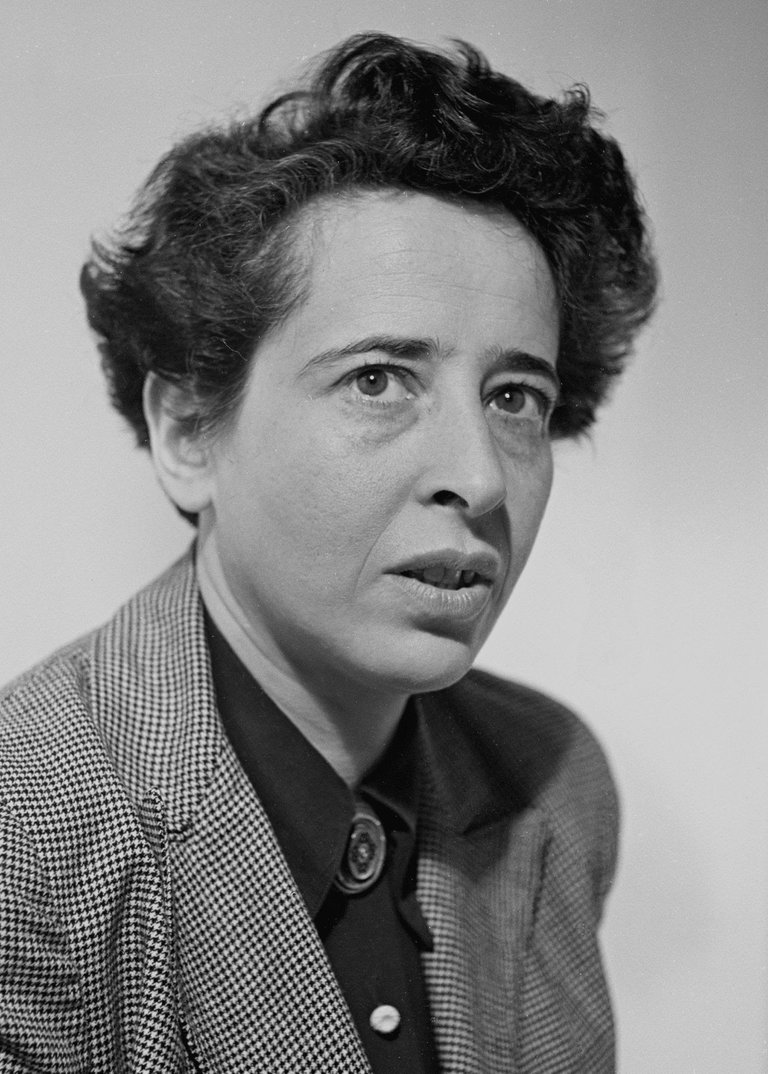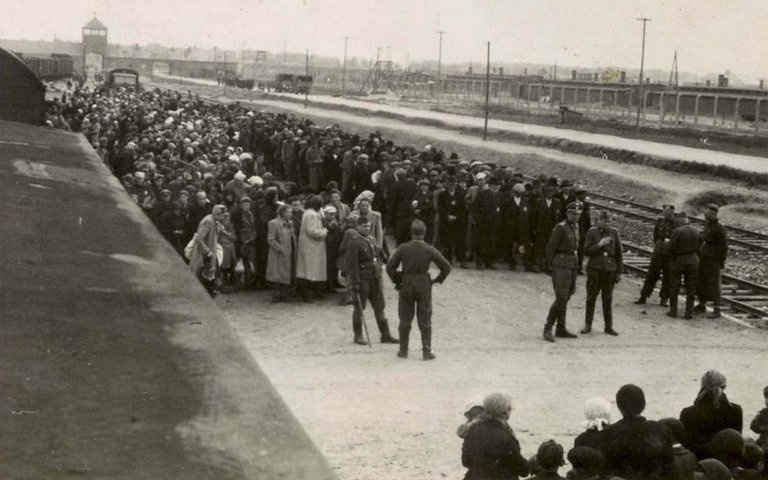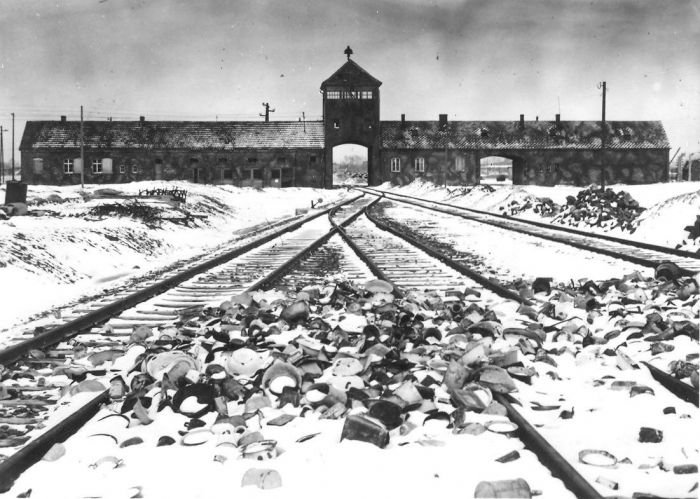By understanding this, you will gain a much better understanding of your life. [Eng/Esp]
Need to understand
To labor and consume, this is what our days boil down to. Every morning we wake up ready to do exactly the same as the day before. There is no novelty and we do not long for it either, because any break in our routine, any change in our brief life, triggers a difficult process of readjustment from which we generally move away. As a society, how many years have we been repeating this model of working and consuming? Without an exact date, we could establish, approximately, the second half of the last century. Work and consume, dreaming that one day we will be able to buy our freedom and happiness, but these have never been for sale.
Today's society, young and old, lacks transcendent ideals, true political, aesthetic, ethical or social interests. The old blame the young for the current misfortune, and the latter in turn reproach the former for being the cause of our unfortunate effects. A poem sums it up: There are no words to break through the darkness, no gods to raise their hand. Everywhere I look...earth piling up. There are no shapes that fall away and no shadows that hover. And I still hear:
"Too late, too late".
The poem has no name, but a hand that long ago traced it, it is about Hannah Arendt, an enormous philosopher, or better correct, thinker of the last century, and the fact is that Arendt, when her intellectual career was already consolidated denied being a philosopher, although she herself from the age of fourteen knew that she wanted to study philosophy, and so she did, reading, criticizing and rewriting, without distinction, practically the main thinkers of the West: she once stated:
"Somehow, the following question was put to me: either I study philosophy or I throw myself into a well, so to speak. But certainly not for lack of attachment to life."

Hannah Arendt, German and Jewish,was born at the beginning of the last century and although she never acknowledged it as such, there is no doubt that she was a child prodigy who somehow reminds us of our Mexican nun and also prodigy, Sor Juana Inés de la Cruz, perhaps for another time it would be interesting to find the points in common between both, not philosophers, but thinkers.
Arendt was initiated in philosophy during her childhood, and in politics as an adult. To the first discipline she came by her eagerness to want to understand (isn't this what Sor Juana wanted?), to learn to think the and in the world, however, a process of transformation occurred in her when the Nazis began the persecution of the Jews in 1933, year in which occurred the "preventive arrests" in which Jews were arrested, taken to the cellars of the Gestapo and then killed in concentration camps.

Philosophy, understood from a classical gaze, serves to contemplate the world and find in it the essences that determine it, but politics, and this was what changed the way everything else could have been somehow recomposed, since in politics almost everything can always be recomposed. But this did not. This should never have happened. And I'm not just talking about the number of victims; I'm talking about the method, the fabrication of corpses and all those things. This should never have happened; this is something that we can never get used to.
And of all that the war took away, is there anything left? Yes, says Arendt, the mother tongue, a language that only serves to refer to a world that no longer exists, but that somehow prevails in the most intimate part of each one of us. In this regard, poetry, an almost hidden facet of Arendt, is the only form of reconciliation. In another of her verses, christened "Consolation," she says: "The hours will come when the old wounds, those we have long forgotten, will threaten to consume us. The days will come when no scales of life and sorrows will be able to incline towards one dish or the other. The hours will pass and the days will pass. But one gain will remain for us: sheer persistence.
The coming to power of the Nazi regime forced Arendt to flee Germany and as soon as this happened, the state presided by Hitler withdrew her nationality, Harendt became a stateless person who, aimlessly, arrived in the United States of America, where she remained until her death in 1975. The end of the war allowed Arendt to return to Germany on a few occasions, but her homeland, the land in which she had lived and whose language was still etched in her memory, no longer existed, it had turned to ashes along with all the bodies that had unjustly burned in the ovens of the concentration camps.

Did the end of the war make us better people? No, that's why we labor and consume. Will we ever achieve some kind of redemption as a species? It is impossible to know. The misfortune Arendt witnessed did not, however, rob her of her ability to laugh at what had happened and to love her fellow human beings. She adopted politics because of her desire to act, to renounce passive observation for the benefit not of her fellow man, but of her friends, for if there was one kind of love in which this portentous woman believed, it was that of friendship. From her adolescence, Hannah Arendt knew that philosophy did not help us find answers, but it did help us ask better questions, and if she delved into the love of knowledge it was because we all have the intuition that our freedom and salvation begin with a need to understand.
PDF book: Hannah Arendt | "The Plurality of the World":
https://drive.google.com/file/d/1wTEvPsjmz1dViRXwJ4G2EwprP01TmXAS/view?usp=sharing
Text published in:
https://heraldodepuebla.com/2021/04/16/el-mundo-iluminado-51/
Edición en español
Necesidad de comprender
Laborar y consumir, a esto se resumen nuestros días. Cada mañana despertamos dispuestos a hacer exactamente lo mismo que el día anterior. No hay novedad y tampoco la anhelamos, pues toda ruptura de nuestra rutina, todo cambio en nuestra breve vida, desencadena un difícil proceso de readaptación del que generalmente nos alejamos. ¿Como sociedad, cuántos años llevamos repitiendo este modelo de laborar y consumir? Sin fecha exacta, podríamos establecer, aproximadamente, la segunda mitad del pasado siglo. Laborar y consumir, soñando con que un día podremos comprar nuestra libertad y felicidad, mas éstas nunca han estado a la venta.
La sociedad actual, jóvenes y viejos, carece de ideales trascendentes, de verdaderos intereses políticos, estéticos, éticos o sociales. Los viejos culpan a los jóvenes de la desgracia actual, y éstos a su vez le recriminan a los primeros el ser la causa de nuestros lamentables efectos. Un poema lo resume: No hay palabras que irrumpan en la oscuridad ni dioses que alcen la mano. Adonde quiera que mire... tierra amontonándose. No hay formas que se desprendan ni sombras que se ciernan. Y sigo oyendo todavía:
"Demasiado tarde, demasiado tarde"».
El poema no tiene nombre, pero sí una mano que hace mucho lo trazó, se trata de Hannah Arendt, una enorme filósofa, o mejor corrijamos, pensadora del siglo pasado, y es que Arendt, cuando su carrera intelectual estaba ya consolidada negaba ser filósofa, a pesar de que ella misma desde los catorce años de edad sabía que quería estudiar filosofía, y así lo hizo, leyendo, criticando y reescribiendo, sin distinción, prácticamente a los principales pensadores de Occidente: una vez afirmó:
«De algún modo, se me planteó la siguiente cuestión: o estudio filosofía o me tiro a un pozo, por así decirlo. Pero, desde luego, no por falta de apego a la vida».

Hannah Arendt, alemana y judía,
nació a principios del siglo pasado y aunque ella nunca lo reconoció como tal, no hay dudas de que fue una niña prodigio con que de alguna forma nos recuerda a nuestra mexicana monja y también prodigio, sor Juana Inés de la Cruz, quizás para otro momento sería interesante hallar los puntos en común entre ambas, no filósofas, pensadoras.
Arendt se inició en la filosofía durante su infancia, y en la política, cuando adulta. A la primera disciplina llegó por su afán de querer entender (¿no esto mismo lo que sor Juana quiso?), de aprender a pensar el y en el mundo, sin embargo, un proceso de transformación ocurrió en ella cuando los nazis iniciaron la persecución de los judíos en 1933, año en que ocurrieron las «detenciones preventivas» en las que judíos fueron apresados, llevados a los sótanos de la Gestapo y después muertos en los campos de concentración.

La filosofía, entendida desde una mirada clásica, sirve para contemplar al mundo y hallar en él las esencias que lo determinan, pero la política, y esto fue lo que cambió la manera de que todo lo demás hubiera podido recomponerse de alguna manera, ya que en política casi todo se puede siempre recomponer. Pero esto no. Esto no debería haber sucedido nunca. Y no solo me refiero al número de víctimas; me refiero al método, a la fabricación de cadáveres y a todas esas cosas. Eso no debería haber sucedido; se trata de algo a lo que nunca podremos acostumbrarnos»>.
¿Y de todo aquello que la guerra se llevó, quedó algo? Sí, dice Arendt, la lengua materna, una lengua que únicamente sirve para referir un mundo que ya no existe, pero que de alguna manera prevalece en lo más íntimo de cada uno de nosotros. A propósito de esto, la poesía, faceta casi oculta de Arendt, es la única forma de reconciliación. En otros de sus versos, bautizados como "Consuelo", ella dice: «Llegarán las horas en que las viejas heridas, esas que olvidamos hace tiempo, amenazarán con consumirnos. Llegarán los días en que ninguna balanza de la vida y los pesares podrá inclinarse hacia uno u otro plato. Trascurrirán las horas y pasarán los días. Pero una ganancia sí nos quedará: la mera persistencia.>>
La llegada al poder del régimen nazi obligó a Arendt a huir de Alemania y tan pronto como esto sucedió, el estado presidido por Hitler le retiró la nacionalidad, Harendt se convirtió en una apátrida que, sin rumbo, llegó a los Estados Unidos de Norteamérica, país en el que permaneció hasta su muerte en 1975. El fin de la guerra le permitió a Arendt regresar en algunas ocasiones a Alemania, sin embargo, su patria, aquella tierra en la que había vivido y de la que la lengua todavía le quedaba grabada en la memoria, ya no existía, se había hecho cenizas junto con todos los cuerpos que injustamente habían ardido en los hornos de los campos de concentración.

¿El fin de la guerra nos hizo mejores personas? No, por eso laboramos y consumimos. ¿Podremos alcanzar algún tipo de redención como especie? Imposible saberlo. La desgracia que Arendt atestiguó, a pesar de todo, no le arrebató su capacidad de reírse de lo sucedido y de amar a sus semejantes. Ella adoptó a la política por su deseo de actuar, de renunciar a la observación pasiva en beneficio no de su prójimo, sino de sus amigos, pues si hubo un tipo de amor en el que esta portentosa mujer creyó, fue en el de la amistad. Desde su adolescencia, Hannah Arendt sabía que la filosofía no nos ayudaba a encontrar respuestas, pero sí a hacernos mejores preguntas, y si ella se adentró en el amor al conocimiento fue porque todos tenemos la intuición de que nuestra libertad y salvación comienzan por una necesidad de comprender.
Libro en PDF: Hannah Arendt | "La pluralidad del mundo":
https://drive.google.com/file/d/1wTEvPsjmz1dViRXwJ4G2EwprP01TmXAS/view?usp=sharing
Texto publicado en:
https://heraldodepuebla.com/2021/04/16/el mundo-iluminado-51/